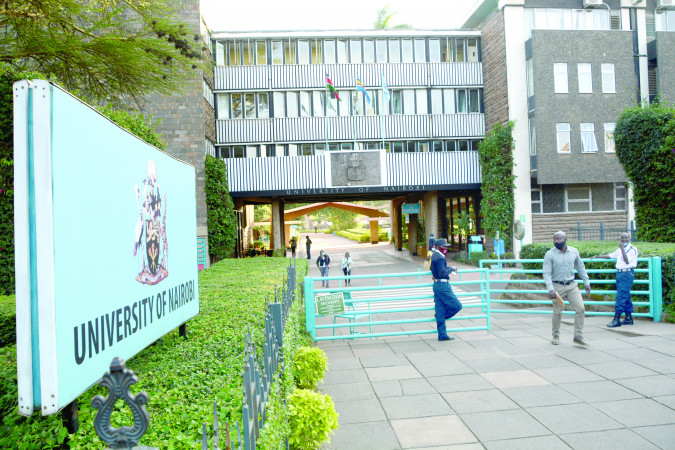Lack of career guidance to blame for low transition to universities
By Irene.Githinji, December 18, 2023Lack of adequate and professional career guidance has been identified as one of the reasons for low transition rates for secondary school students to higher learning institutions in the country.
It is also to blame for skills deficiency being witnessed in the country’s labour market, where there is a mismatch between the skills that employers are looking for and training and experience that school leavers possess.
Education Cabinet Secretary Ezekiel Machogu says many young people enter the labour market without adequate skills mainly because they were not exposed to proper and professional career guidance from the primary school to university level.
He made reference to Kenya Universities and Colleges Central Placement Service (KUCCPS) data saying the transition rate of secondary school graduates to vocational training, technical institutions or universities stood at 32 per cent during the 2023/2024-placement cycle.
“Young people in Kenya face a monumental challenge of employment. Industry reports show that the youth unemployment rate is 67 per cent compared to the overall unemployment rate of 12.7 per cent in the country. For a country that has pegged its development on the robust energy of its youth, this picture does not inspire hope,” said Machogu during a recent Career Development Association of Kenyan (CDAK) in a speech read on his behalf by Director of Technical and Vocational Education and Training (TVET), Dr Meshack Opwora.
He said the economic survey showed a transition rate of only 30 per cent from secondary to post-secondary education over the last few years leaving a substantial 70 per cent unaccounted for.
Machogu said the Presidential Working Party on Education Reforms (PWPER) reported weak structures for career guidance in schools and recommended a review of the frameworks for implementation of career guidance.
The CS said the low transition rates to vocational training, technical institutions and universities had exacerbated youth unemployment in the country, which currently stands at 67 per cent compared to the national unemployment rate of 12. 7 per cent.
“Professional career guidance will assist learners in all stages of transition from junior school to senior school and colleges, TVETS, universities to the world of work,” he said.
Research conducted by CDAK on career alignment revealed that 66 per cent of respondents believe they are in the wrong career. Only seven per cent believe they are in the right career, while 27 per cent do not know.
Labor Principal Secretary, Shadrack Mwadime urged all employment agencies, education and training institutions to establish an office of career services.
“All employment agencies, education and training institutions should provide career guidance services, which include career education, career counselling and career information and young people should be engaged in finding solutions to their employability challenges,” the PS said when he closed the workshop.
He said the government is committed to developing a robust and professionalised career guidance system that enables people to manage their learning and career pathways within the context of a rapidly changing education, training and labour-market system.
He said the State Department for Labour and Skills Development is mandated, under Executive Order No. 1 of 2023, to oversee skills development among actors and to establish and manage the institutional framework for linking industry, skills development and training.
In line with this mandate, he said the department promotes and coordinates career guidance among the various implementing entities.
“We are cognisant of the fact that the implementation of career guidance will not be possible without the full support of the private sector, including industry players, non-governmental organisations, civil society, and development partners. Their vigor, resourcefulness, and innovation is vital in development and implementation of career guidance programmes. The department will continue to work with the Private Sector for the successful realisation of career guidance in Kenya,” assured Mwadime.
The PS stated that the country has been reeling under the youth unemployment crises.
“The consequences of weak youth unemployment are grave. These include poverty, inequality, dependency, loss of self-esteem, depression, social and political unrest and vulnerability to drug and substance abuse, human trafficking, criminal behavior, radicalization and violent extremism,” he said.
These, said Mwadime, underscore the critical role that career guidance plays towards accelerating youth employability and is also instrumental in reducing skill mismatches, improving school-to-work transitions, employability and labour mobility as well as reintegrating marginalized and at risk groups into education and labour market services.
